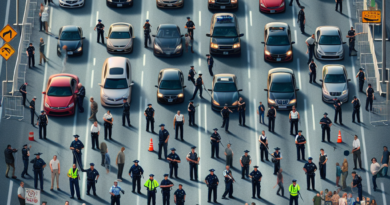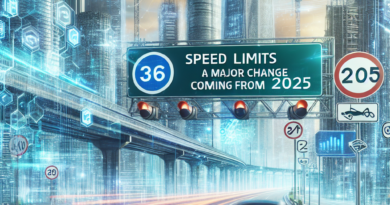When Is It Acceptable to Run a Red Light (and Nullify Fines)?
“`html
Understanding Red Light Regulations
The red traffic light indicates that drivers must stop.
It’s one of the very few rules that most drivers and pedestrians reliably comprehend, even though adherence is not guaranteed, often resulting in unfortunate and dangerous accidents.
However, the road code allows for particular exceptions to this rule, permitting passage through a red light without penalties as long as overall safety is ensured.
These exceptional cases arise when an urgent need justifies breaking the law, albeit with necessary caution.
When Can You Go Through a Red Light?
1.
State of Necessity: Frequently referenced to justify various illegal actions, the legal acknowledgment of necessity involves critical urgency where no alternative exists.
It requires:
- An imminent danger.
- The risk of harm to a person (not necessarily the one committing the act).
- Passing the red light as the only option to avoid danger.
- No intentional creation of the peril by the driver.
- The danger must be real and proportional to the offense committed.
Proving this necessity is vital when contesting a traffic fine.
2.
Emergency Vehicles: Ambulances and law enforcement vehicles with activated lights and sirens may legally bypass red lights.
Their emergencies justify this deviation, though drivers must remain vigilant.
Following an emergency vehicle to illegally break the law is strictly forbidden, but yielding the right of way for such vehicles is permissible.
Caution is essential in these situations.
3.
Sudden Danger: This category encompasses unexpected situations that might force drivers into hasty and potentially illegal maneuvers.
Actions must be proportionate to the severity of the threat.
For example, swerving to avoid a suddenly crossing animal is valid, but a driver who was speeding cannot claim sudden danger if they accidentally create the scenario.
4.
Traffic Conditions: Occasionally, red light violations can occur due to unavoidable traffic conditions causing an unintentional infraction.
Sudden slowdowns may require clearing an intersection with caution.
Ultimately, the driver must obey traffic regulations and be sufficiently vigilant to assess the situation accurately.
It’s crucial to remember that crossing on a yellow light that’s already changed to red is also prohibited, thus this justification holds only in extreme cases where safety is compromised.
“`




